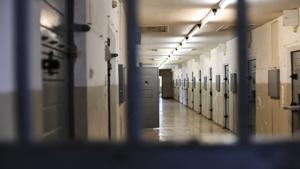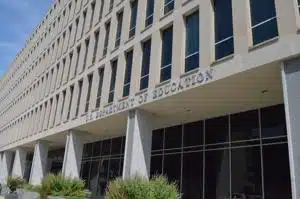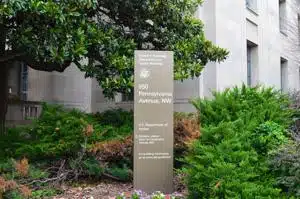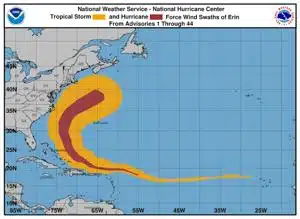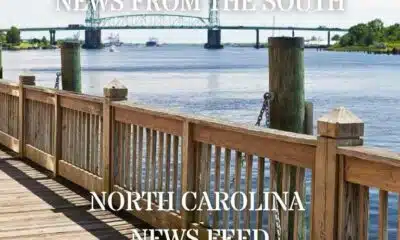(The Center Square) – The U.S. is set to meet with China for the first time in the trade war begun just over a month ago, and while it could lead to real negotiations down the road, many observers see it as a preliminary meeting.
President Donald Trump raised tariffs with many of America’s trading partners, including China, on April 2, causing many countries to reach out to the U.S. to negotiate trade deals, according to the administration (though the White House has only shared the framework details of one deal made with the United Kingdom). But China chose to raise its tariffs in response, sparking a trade war that has resulted in a 145% tariff on Chinese imports to the U.S. and a 125% tariff on American goods imported to China.
Trump has said he has been talking with Chinese President Xi Jinping, but neither country had released any details about those conversations, and China denied they happened. Several economists The Center Square spoke to weren’t optimistic that the meeting would yield big results.
“By all accounts that we can locate, it appears that it’s a meeting to talk about a meeting,” said director of education and senior research fellow at the American Institute for Economic Research, Ryan Yonk.”Which isn’t a big surprise. That’s how these things tend to begin, where behind the scenes, there is movement likely on both sides… to begin to talk about how will they actually set up a way to have more formal discussions.’”
Alex Durante, a senior economist at the Tax Foundation who previously worked for the Federal Reserve Board and the Council of Economic Advisers, agreed.
“I think it’s possible that maybe both sides reach some kind of agreement and tariffs maybe on certain kinds of goods are lowered or removed, but I’m a bit skeptical that we’re going to get something very remarkable,” Durante told The Center Square.
Part of the skepticism is due to an episode of déjà vu – the first Trump administration also had specific aspirations for U.S.-China trade relations which largely never materialized. Trump also raised tariffs on China then to establish a better trade relationship. China, as it has now, responded in kind. In January 2020, the Trump administration signed the ‘Phase One’ trade agreement, which included commitments from China to increase U.S. imports by $200 billion and strengthen protections on intellectual property. But China ultimately fell short of its purchasing commitments, partly due to the pandemic. Trump had also sought to further address non-tariff barriers such as forced technology transfer and state subsidies, but those deeper issues remained unresolved.
“They never got to some of the real issues – that is, the problems of the state capitalism characteristics that really hamper trade and investment with not just the United States but others – the kinds of things about technology transfer, about subsidies, about favoritism to state-owned companies,” said Claude Barfield, a senior fellow at the American Enterprise Institute and a former consultant to the office of the U.S. Trade Representative.
Some of these issues were spoken about in a congressional hearing earlier this year that focused on the Chinese Communist Party’s influence on American investment. China reportedly pressures companies to share proprietary technology to gain access to the Chinese market, and it employs other business practices in its international deals that don’t comply with World Trade Organization regulations.
More skepticism comes from the fact that both sides have invested far more than merely economics in the outcome of their negotiations.
“You [have] two regimes that are unlikely to make decisions on pure economic outcomes, as much as we think they should,” Yonk told The Center Square.
China has undergone a marked real estate crisis and faces other economic challenges, and the U.S. is adjusting to new economic policies under the Trump administration, the after-effects of a jarring inflationary period and the looming question of a recession.
“There’s been massive capital investment [in China] that really hasn’t panned out in the way they expected,” Yonk said. “In large part, China had messaged their legitimacy by what they could deliver economically. When that changed, there was a pivot to more Chinese nationalism as the justification, which means it’s no longer about just getting an economic deal that’s going to work for China, there’s also now a much more nationalistic question that’s on the table about respect and sort of world influence.”
Barfield also described economic problems in both countries. Xi has “internal issues,” Barfield said, while Trump, elected for his economic policies, faces pressures at home.
“Has he done things to help him on the issues that got him elected?” Barfield remarked to The Center Square. “Certainly, throwing tariffs all around the world isn’t going to help. We don’t know yet, but it may not end up in inflation over the whole U.S. economy rather than just sort of price hikes in different sectors, but it’s something he and his people are now worried about.”
The administration has acknowledged the existing rates are unsustainable, but it’s unclear which side will make concessions first.
“I think it’s a bit of a pick ‘em [whether] one side or the other gives in first, and I actually think we’re not likely to see evidence that one side or the other did. I think both sides will claim the other did and the question will be, can the other side accept that narrative and still go forward with some sort of trade deal. I think it’s gonna be a long road to a trade deal with China that is really sort of substantial and far-reaching,” Yonk said.
Trump did post to Truth Social on Friday, saying a lowered 80% tariff on China “seems right” but that it was up to Treasury Secretary Scott Bessent, but this was after saying earlier in the week that the U.S. would not lower tariffs on China to prompt concessions from the Chinese.
“I think the best outcome would be sort of a cooling off period, if they agree to actually have discussions after Saturday,” Yonk said.

